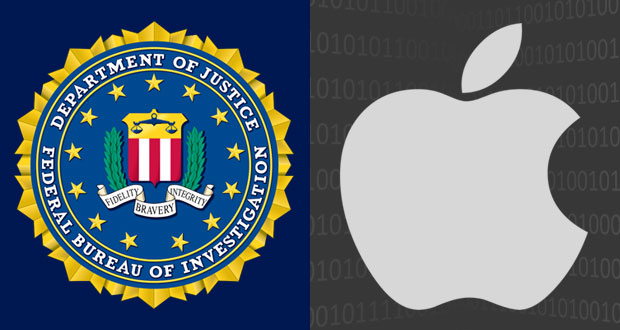After a bitter legal battle over encryption and privacy rights, the Department of Justice on Monday announced it would back out of its case against Apple because the FBI was able to crack the code of the iPhone used by one of the San Bernardino, California, shooters.
The department had asked a federal magistrate judge in California to force Apple to help the FBI crack open the encrypted smartphone by writing new code that would allow it to gather additional evidence in the December terrorist attack that left 14 dead and dozens wounded.
The FBI was able to retrieve the data with the help of an undisclosed third party and no longer required Apple’s assistance, according to DoJ spokesperson Melanie Newman. However, the agency reserved the right to take another bite at Apple if encrypted evidence runs up against privacy rights, corporate interest and the Constitution.
“It remains a priority for the government to ensure that law enforcement can obtain crucial digital information to protect national security and public safety, either with cooperation from relevant parties, or through the court system when cooperation fails,” Newman said. “We will continue to pursue all available options for this mission, including seeking the cooperation of manufacturers and relying upon the creativity of both the public and private sectors.”
Security Subverted
Lawyers for Apple had objected to the FBI demand that the company create a backdoor access code for the government to break into the iPhone, arguing that it would open the door to additional requests not only in the U.S., but from foreign states that lack civil liberties protections.
If the government had pursued the case, Apple would have sought to have full disclosure over the identity and method of decrypting the iPhone, lawyers said earlier this month. It remains unclear whether Apple will continue to pursue that plan now that the case has been dropped.
The FBI should be required to disclose how it was able to access the encrypted phone, said Andrew Crocker, staff attorney at theElectronic Frontier Foundation, citing the government’s Vulnerabilities Equities Process, or VEP, which requires that companies be alerted to any security vulnerabilities that leave them exposed to hackers or when the government exploits those weaknesses to gather information.
“EFF is pleased that the Justice Department has retreated from its dangerous and unconstitutional attempt to force Apple to subvert the security of its iOS operating system. However, this new method of accessing the phone raises questions about the government’s apparent use of security vulnerabilities in iOS and whether it will inform Apple about these vulnerabilities,” he said.
“If the FBI used a vulnerability to unlock the iPhone in the San Bernardino case, the VEP must apply, meaning that there should be a very strong bias in favor of informing Apple of the vulnerability. That would allow Apple to fix the flaw and protect the security of all its users. We look forward to seeing more transparency on this issue,” Crocker added.
The Last Shot Not Fired
However the encryption was broken, the process may not apply to late-model iPhones and likely will lead Apple to upgrade the encryption in future models to the point where the company cannot even access the data, said Eli Dourado, director of theTechnology Policy Program at the Mercatus Center at George Mason University.
“While I have no reason to doubt that the FBI dropped the case because they were able to access the data, many will suspect that it was because the agency was losing in the court of public opinion and was perhaps on the verge of losing in court,” he told the E-Commerce Times.
Despite the fact that the case was resolved out of court, the legal issue will be raised again, Dourado predicted.
The case was never just about the phone of the San Bernardino shooter but was “an unprecedented power grab” by the federal government that threatened the privacy and security of all Americans, said Alex Abdo, staff attorney at theAmerican Civil Liberties Union.
“Unfortunately, this news appears to be just a delay of an inevitable fight over whether the FBI can force Apple to undermine the security of its own products,” he said. “We would all be more secure if the government ended this reckless effort.”























































Social Media
See all Social Media